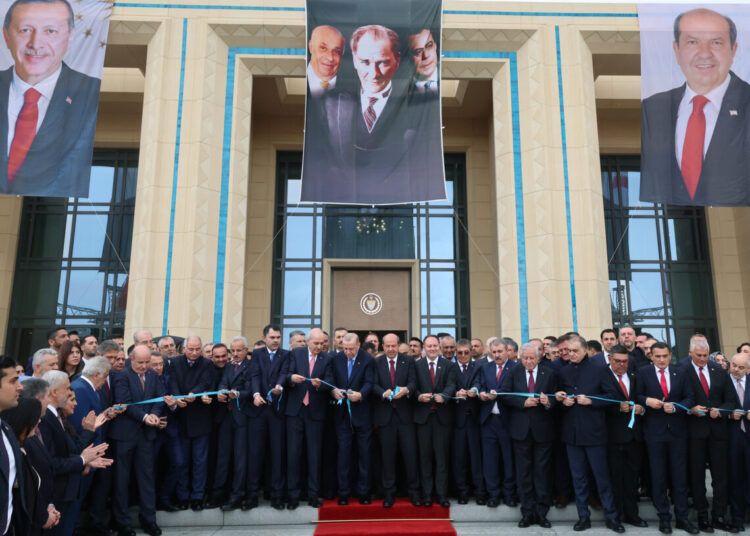Levent Kenez/Stockholm
With just weeks to go before the October 19 presidential election in the Turkish Republic of Northern Cyprus (KKTC), recognized only by Turkey, President Recep Tayyip Erdogan has attracted sharp criticism for remarks widely seen as a direct intervention.
Appearing by phone during a youth event organized this week with former Real Madrid player Mesut Özil, Erdogan told the crowd that “we must win the election in the KKTC.” The statement, broadcast to the audience, was applauded in the hall but quickly drew backlash from across the island. Commentators in the local press said Erdogan’s words were an overt attempt to influence the vote and proof that Ankara would not remain neutral.
The election is a contest between incumbent Ersin Tatar, supported by the ruling National Unity Party (UBP), and Republican Turks Party (CTP) candidate Tufan Erhürman. Ankara’s involvement reflects concerns that Tatar, long backed by Erdogan, may be losing momentum. Reports in the Turkish Cypriot media say Erhürman has gained in recent polls, while the Turkish government has intensified its presence on the ground.
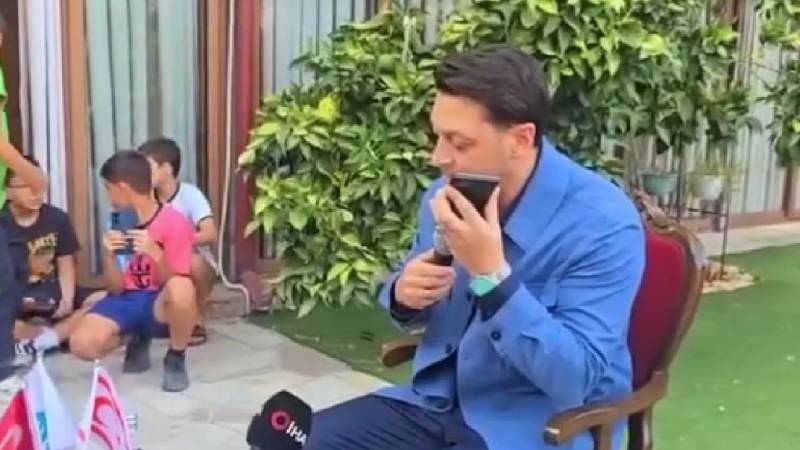
Former interior minister Süleyman Soylu, now a Justice and Development Party (AKP) lawmaker, has also joined the campaign in the KKTC. According to local reports Soylu has visited homes and urged voters to view the election as a matter of survival. His involvement has drawn attention because of longstanding accusations linking him to mafia groups in Turkey. The presence of such a controversial figure has fueled criticism that organized crime networks overlap with official political operations.
Delegations of lawmakers from the AKP and its partner, the Nationalist Movement Party (MHP), have also been dispatched. Among them are AKP Vice Chairman Hüseyin Yayman, Konya MP Orhan Erdem, MHP deputy Ahmet Erbaş and other party officials. Their campaigning in Nicosia and other districts has been described in the Turkish Cypriot press as unprecedented in scale. The MHP, Erdogan’s nationalist ally, has also faced scrutiny for its ties to mafia elements, raising additional concerns about the influence of criminal groups in political affairs.
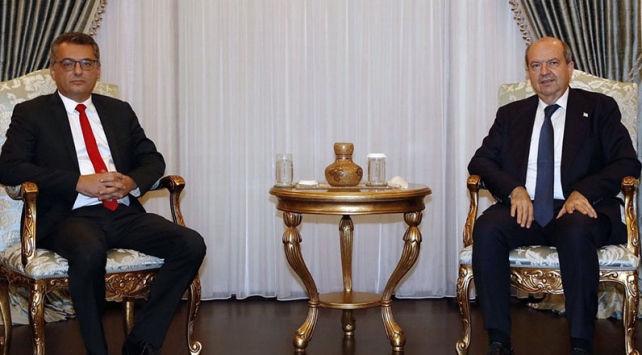
Erdogan has coupled his political push with symbolic gestures. In May he attended the inauguration of a new presidential and parliamentary complex in Nicosia. The Cumhuriyet Yerleşkesi, spanning more than 600,000 square meters, includes the presidential offices, a parliament building, a library, a mosque and gardens. Turkish outlets reported the cost at 5.5 billion lira. Erdogan presented the project as a symbol of the KKTC’s statehood, saying it would demonstrate to the world that the territory functions as a state. Critics, however, quickly labeled it his “fourth palace” and argued that it highlighted Turkey’s dominance over KKTC institutions rather than strengthening their independence.
Opposition voices in Nicosia argue that Ankara’s involvement threatens the sovereignty of KKTC institutions. Erdogan regularly insists that the KKTC must be treated as an independent state, but his campaign rhetoric and the presence of Turkish officials have been cited as contradictions that undermine the legitimacy he claims to defend. Analysts note that by framing the election as a national mission, Erdogan risks weakening the credibility of the Turkish Cypriot leadership among its own people.
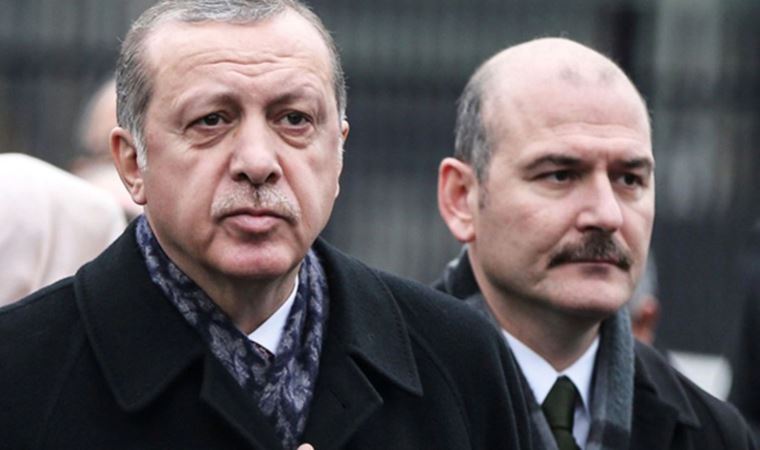
Local reporting has also focused on the shadow economy in the KKTC. The territory is widely described as a hub for money laundering and illegal betting operations linked to Turkish organized crime. Its unrecognized status internationally, apart from Turkey, provides cover for financial networks that thrive in regulatory gray areas. Critics say ensuring Tatar’s re-election is central to keeping these arrangements intact.
The Supreme Election Board has announced that eight candidates will compete. Along with Tatar and Erhürman, six independents are on the ballot. More than 217,000 registered voters are expected to cast ballots at 777 polling stations. If no candidate wins more than 50 percent in the first round, the top two will advance to a runoff a week later.
As the campaign enters its final stage, the visible role of Ankara has fueled tensions. The active campaigning of AKP and MHP officials, combined with Erdogan’s insistence that “we must win,” has intensified accusations that Turkey treats the KKTC less as a partner than as a province under its control. Opposition figures in Nicosia point out that Turkey’s preferred candidate is essentially supporting mafia influence, corruption and political patronage, which they see as deeply damaging and believe could be weakened if Tatar loses.
For instance, former Turkish prime minister and Erdogan’s right-hand man Binali Yıldırım, who currently chairs the Council of Elders of the Organization of Turkic States, has been linked to alleged narcotics trafficking operations in Cyprus through slain crime boss Halil Falyalı. The claims surfaced in testimony by Cemil Önal, Falyalı’s former financial coordinator, who said members of Yıldırım’s family were involved in smuggling activities. Önal, who had been living under protection in the Netherlands, was shot dead on May 1, 2025.
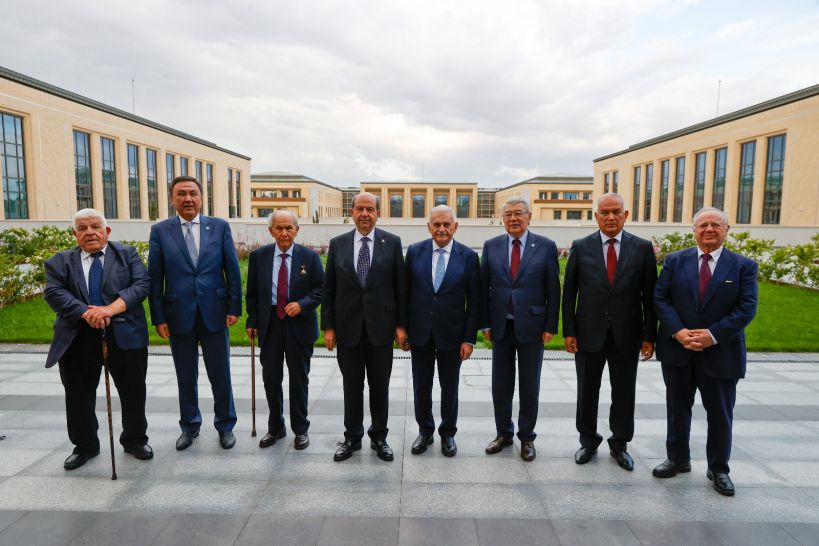
Allegations have also implicated Fuat Oktay, former vice president and now head of parliament’s Foreign Affairs Committee. In a recent interview published shortly before his death, Önal alleged that Oktay had accepted $50 million in bribes from Falyalı. The same source claimed that Süleyman Soylu, who served as interior minister until 2023, received $20 million from the late Cypriot kingpin. According to the testimony, Falyalı maintained a large archive of blackmail material, including secret recordings of bribery negotiations and private encounters with high-profile Turkish officials at his hotel.
The network allegedly extended into Turkey’s diplomatic corps. In August 2024 Erdogan appointed Yasin Ekrem Serim, the son of his longtime financial aide Maksut Serim and a former business associate of Falyalı’s, as ambassador to the KKTC. Önal claimed Serim’s mission was to retrieve sensitive materials collected by Falyalı, but he was recalled after only seven months, reportedly due to his own involvement in shady dealings.
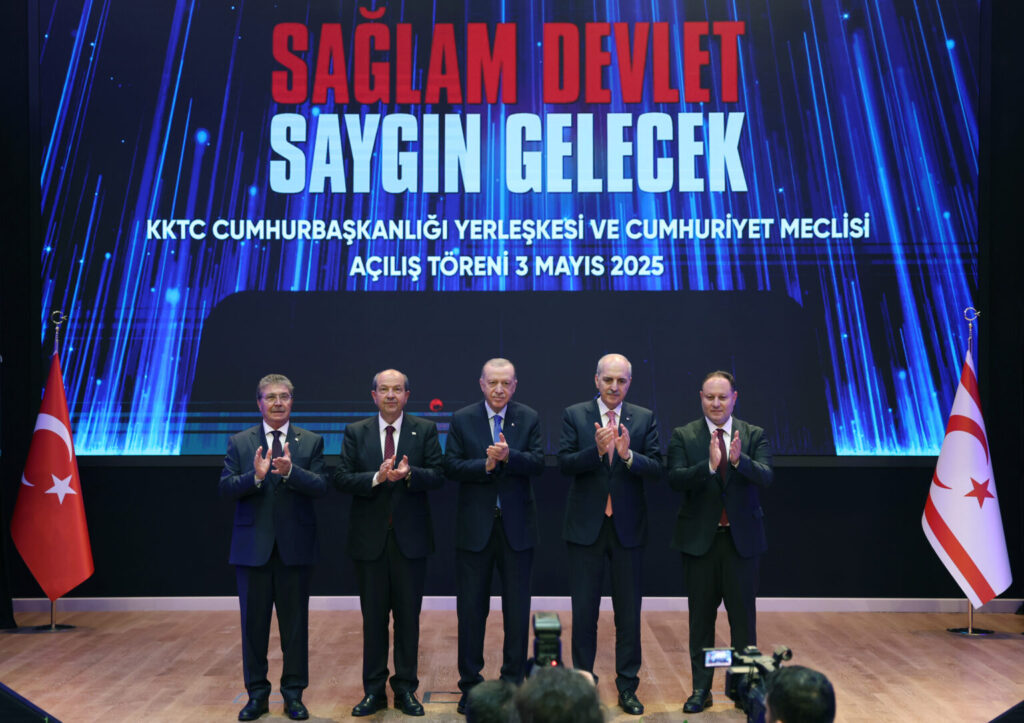
The explosive accusations have revived longstanding concerns about the nexus between political elites and organized crime in northern Cyprus, a territory where illegal gambling, money laundering and drug trafficking remain entrenched. While all three politicians have dismissed the allegations, the killing of Önal has added further mystery to a case that threatens to expose sensitive networks linking Ankara to Cyprus.
Falyalı, who was assassinated in 2022, was widely believed to have acted as a key fixer between underworld groups and political circles in Turkey. His reported connections to Yıldırım, Oktay and Soylu are now casting a shadow over Ankara’s efforts to assert influence in northern Cyprus and the wider Turkic world.
While Ankara frames its actions as protecting unity and strategic interests, the interventions have reinforced perceptions that KKTC elections reflect Turkish domestic politics rather than the independent will of its electorate. The outcome on October 19 will decide not only who leads the KKTC but also whether its fragile institutions can withstand the weight of direct interference from Ankara.

